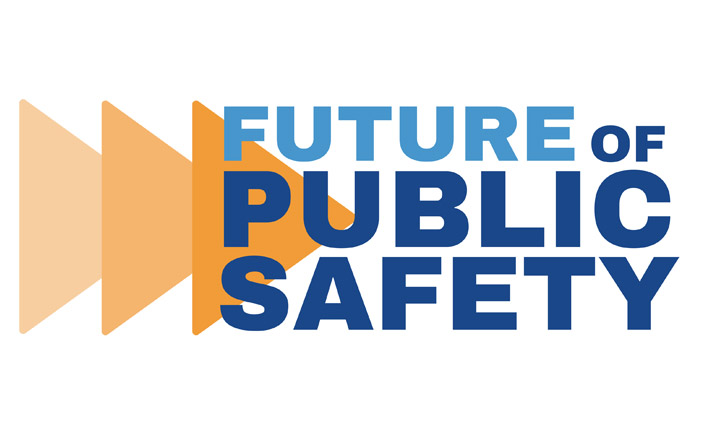
Report identifies nine points of consensus around the future of public safety
December 15, 2020 - Today, the National Organization of Black Law Enforcement Executives (NOBLE) and John Jay College of Criminal Justice (John Jay) released a report, Future of Public Safety, detailing nine points of consensus among law enforcement, activists, union leaders, and elected officials to realize a more racially-just system of public safety and policing in America.
In the report, John Jay and NOBLE share recommendations to help chart a new course for our country where communities of color feel equally protected, respected, and cared for. The report, centered on fairness, is designed to serve as a framework for action and support for local governments, community members, law enforcement leaders, businesses, philanthropic institutions, activists as they work collaboratively to create a new age of public safety.
Beginning in September, NOBLE and John Jay brought together a diverse range of speakers for a series of six public conversations to identify points of consensus around what the future of public safety ought to look like.
- Everyone wants the same thing: to be safe.
- Healthy communities are safer communities. Public resources must be invested in the areas that are most likely to create healthy communities.
- We must decriminalize mental health, homelessness, and substance abuse and invest in building an effective network of social services in communities.
- There must be a cultural shift in policing away from thinking of officers as “warriors” and instead as guardians who are there to protect the communities they serve.
Almost 40 speakers participated in the series of on-the-record conversations, including Mayor of Atlanta Keisha Lance Bottoms, Chief Executive Officer of the Robin Hood Foundation Wes Moore, Philadelphia Police Commissioner Danielle Outlaw, Minneapolis Police Chief Medaria Arradondo, the Director of the Police Benevolent and Protective Association of Illinois Sean Smoot, Brooklyn District Attorney Eric Gonzalez, activist and organizer Brittany Packnett Cunningham, Director, Gender, Racial, and Ethnic Justice, Ford Foundation Tanya Coke, former Health Commissioner for the City of Baltimore Dr. Leana Wen, New York Assemblyman Michael Blake, and Dane County Sheriff David Mahoney.
“This summer, I watched as thousands of Americans - Black, white, and brown - took to the streets to protest a longstanding history of racial injustice in the United States. The pain and frustration felt was palpable and it was clear that something had to change. This report helps by providing recommendations that will help rebuild trust between law enforcement and the communities they serve,” said Karol V. Mason, President of John Jay College of Criminal Justice. “We see today’s report as a starting point. The work must continue now in communities across the country.”
“Our collective resolve is the most critical resource to effect systemic change within the law enforcement community. At a time when our nation pleads for police reform, it is important for police executives to acknowledge issues of racial inequalities that have gone unfettered far too long,” said Chief C.J. Davis, Immediate Past President of NOBLE. “This report will serve as an effective launching pad to rethink, re-tool, and chart a new path towards the creation of more racially just communities, systems and outcomes – even beyond the law enforcement arena.”
“NOBLE is eager and enthused about our partnership with the John Jay College of Criminal Justice and the opportunity to lend our voice as it relates to defining the role of law enforcement in creating safer communities nationwide,” said Lynda R. Williams, President of NOBLE.
“This collaboration has brought a range of perspectives to the table and allowed us to find consensus on how we can strategically guide and encourage police agencies and communities on best practices. This is our plan of action to reimagine, rethink, and reform community police relations. Our pursuit of fair judicial outcomes for all citizens is a shared goal for law enforcement and the communities they serve. Now is the time to do the work needed to protect neighborhoods and move forward with the systemic change all Americans desperately need and deserve.”
“Thank you to John Jay College of Criminal Justice and NOBLE for facilitating meaningful, candid conversations for leaders, allowing us to peel back the layers of our challenges and work together to build trust between law enforcement and the communities they serve,” said Mayor of Atlanta Keisha Lance Bottoms.
“There is no such thing as public safety without the trust of the community. We have an opportunity to reimagine the future of public safety as a community-driven effort that engages local experts to respond where appropriate to their expertise and shifting certain responsibilities to appropriate community-based or government organizations,” said Wes Moore, CEO of Robin Hood. “We must empower the people of the communities most impacted by crime and police violence and work with them toward reconciliation and solutions that are driven by their lived experience.”
The release of the report is a critical step forward in building a safer, more racially- just system for policing and public safety in the United States. Over the next several months, John Jay and NOBLE will actively engage stakeholders in local communities across the country to help apply the report’s guiding principles in their efforts to transform public safety.
# # #
About the National Organization of Black Law Enforcement Executives
Since 1976, The National Organization of Black Law Enforcement Executives (NOBLE) has served as the conscience of law enforcement by being committed to justice by action. NOBLE represents over 3,000 members internationally, who are primarily African-American chief executive officers of law enforcement agencies at federal, state, county and municipal levels, other law enforcement administrators, and criminal justice practitioners. For more information, visit http://www.noblenational.org.
About John Jay College of Criminal Justice
An international leader in educating for justice, John Jay College of Criminal Justice of the City University of New York is a Hispanic Serving Institution and Minority Serving Institution offering a rich liberal arts and professional studies curriculum to 15,000 undergraduate and graduate students from more than 135 nations. John Jay is home to faculty and research centers at the forefront of advancing criminal and social justice reform. In teaching, scholarship and research, the College engages the theme of justice and explores fundamental human desires for fairness, equality and the rule of law. For more information, visit www.jjay.cuny.edu and follow us on Twitter @JohnJayCollege.
The Estée Lauder Companies Charitable Foundation
This series and report would not have been possible without the generous support of The Estée Lauder Companies Charitable Foundation.



